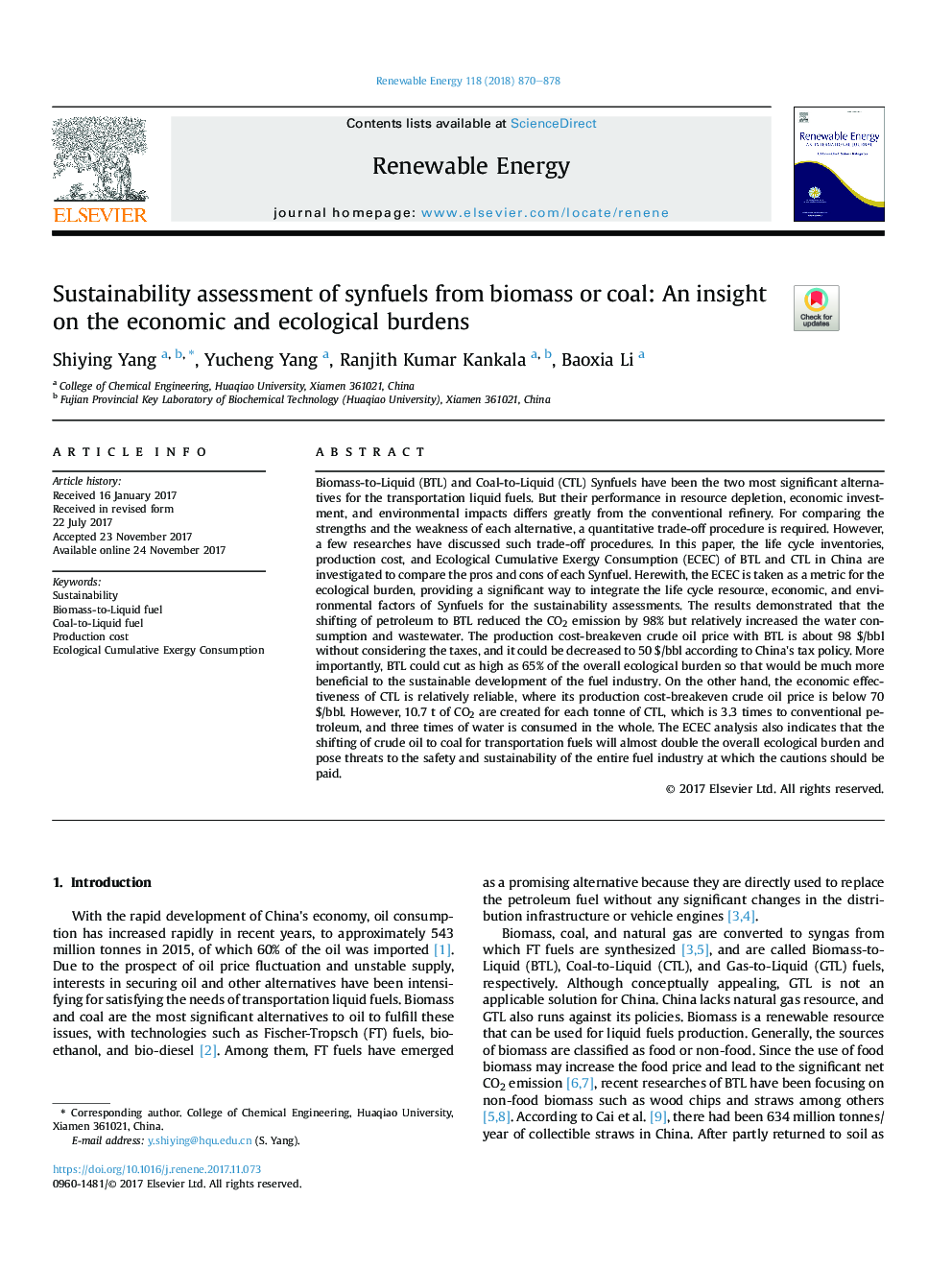| Article ID | Journal | Published Year | Pages | File Type |
|---|---|---|---|---|
| 6765153 | Renewable Energy | 2018 | 9 Pages |
Abstract
Biomass-to-Liquid (BTL) and Coal-to-Liquid (CTL) Synfuels have been the two most significant alternatives for the transportation liquid fuels. But their performance in resource depletion, economic investment, and environmental impacts differs greatly from the conventional refinery. For comparing the strengths and the weakness of each alternative, a quantitative trade-off procedure is required. However, a few researches have discussed such trade-off procedures. In this paper, the life cycle inventories, production cost, and Ecological Cumulative Exergy Consumption (ECEC) of BTL and CTL in China are investigated to compare the pros and cons of each Synfuel. Herewith, the ECEC is taken as a metric for the ecological burden, providing a significant way to integrate the life cycle resource, economic, and environmental factors of Synfuels for the sustainability assessments. The results demonstrated that the shifting of petroleum to BTL reduced the CO2 emission by 98% but relatively increased the water consumption and wastewater. The production cost-breakeven crude oil price with BTL is about 98 $/bbl without considering the taxes, and it could be decreased to 50 $/bbl according to China's tax policy. More importantly, BTL could cut as high as 65% of the overall ecological burden so that would be much more beneficial to the sustainable development of the fuel industry. On the other hand, the economic effectiveness of CTL is relatively reliable, where its production cost-breakeven crude oil price is below 70 $/bbl. However, 10.7Â t of CO2 are created for each tonne of CTL, which is 3.3 times to conventional petroleum, and three times of water is consumed in the whole. The ECEC analysis also indicates that the shifting of crude oil to coal for transportation fuels will almost double the overall ecological burden and pose threats to the safety and sustainability of the entire fuel industry at which the cautions should be paid.
Keywords
Related Topics
Physical Sciences and Engineering
Energy
Renewable Energy, Sustainability and the Environment
Authors
Shiying Yang, Yucheng Yang, Ranjith Kumar Kankala, Baoxia Li,
